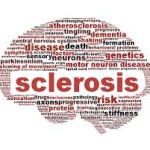 I recently had a fascinating conversation with Dr. Henry Mahnke, CEO of Posit Science regarding one of my biggest bugbears, MS cognitive problems.
I recently had a fascinating conversation with Dr. Henry Mahnke, CEO of Posit Science regarding one of my biggest bugbears, MS cognitive problems.
Could it be possible to train our brains and reduce cognitive symptoms? Read on …
A recent study showed that a specific kind of computerized brain training could be helpful to MS patients.
Impairment of various cognitive functions is reported to affect up to 70 percent of people with MS.
Deficits in speed of processing are considered a signature cognitive symptom of MS. Currently, there is no generally recommended method of treatment.
The study was conducted by researchers at the NYU Langone Medical Center’s MS Comprehensive Care Unit.
They enrolled 135 patients at Stony Brook Medicine, who were randomly assigned to either a brain-exercise intervention group or a computer-games active comparison group.
Both groups were asked to train an hour a day, five days a week, for 12 weeks (a total of 60 hours). Researchers reported high compliance in both groups (games group averaged 57 hours and brain-training group averaged 38).
Both groups improved on the overall cognitive measure. However, despite training about one-third fewer hours, the brain-training group did significantly better than the games group, with nearly three times the gain. The brain-training group had about a 29 percent gain on the cognitive measure.
In addition to the objective neuropsychological battery, patients were asked, as a secondary measure, to self-assess their experience of improvement in cognition. Nearly 57 percent of the brain-training group reported experiencing improvement, as compared to 31 percent in the games group.
The brain exercises used in the study are part of the commercially-available BrainHQ platform and app.
Unlike traditional strategy-based cognitive remediation, BrainHQ is designed to harness the brain’s plasticity – its ability to change chemically, structurally and functionally in response to sensory and other inputs. Most BrainHQ exercises progressively challenge attention and speed of processing, as foundational building blocks of higher brain function (e,g., memory, planning, reasoning).
In fact, the researchers selected BrainHQ for the study because it emphasizes speed of processing.
An additional purpose of the study was to determine if low-cost, self-administered training can work.
“This trial demonstrates that computer-based cognitive remediation accessed from home can be effective in improving cognitive symptoms for individuals with MS,” said Dr. Leigh Charvet, the study’s lead author.
The study was published in PLOS ONE Neurology. It is believed to be the largest study among MS patients to date, measuring impact of brain training on cognition.
Dr. Henry Mahncke, who leads the BrainHQ team, said these results contribute to plans to bring digital therapies targeting specific indications to market, after obtaining appropriate regulatory approvals.







Downloaded ✅ I think it could be a bit addictive lol in a good way though. Very interesting though. Thanks for sharing x
That’s great news! Enjoy 🙂
x
I guess it makes sense – just as our bodies are helped by exercise so too the brain…I guess. I’m so excited as am becoming sort of addicted to the exercise bike…Never before in my life even before MS did I push myself with regard to exercise but now am trying to beat my own (sadly not quite tour de France) records…so now am ready for brain work…Well we’ll see!!!
x
Very impressed with your exercise bike addiction!
Yup, that’s exactly what the CEO said to me – we exercise our bodies but can neglect our brain, our biggest muscle 🙂
X